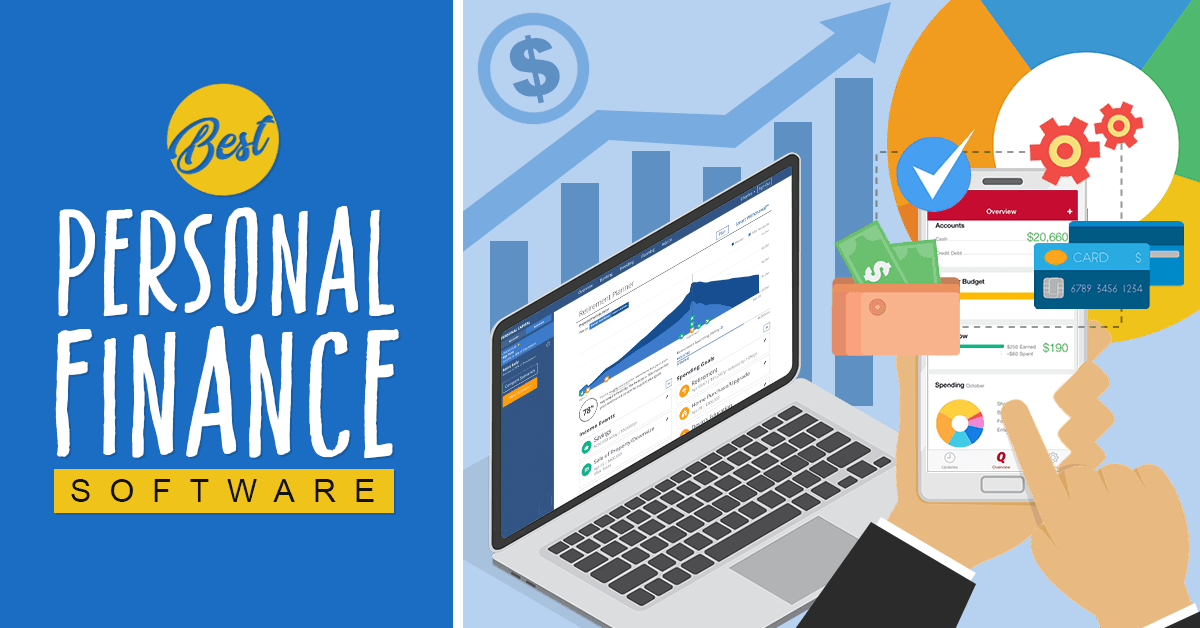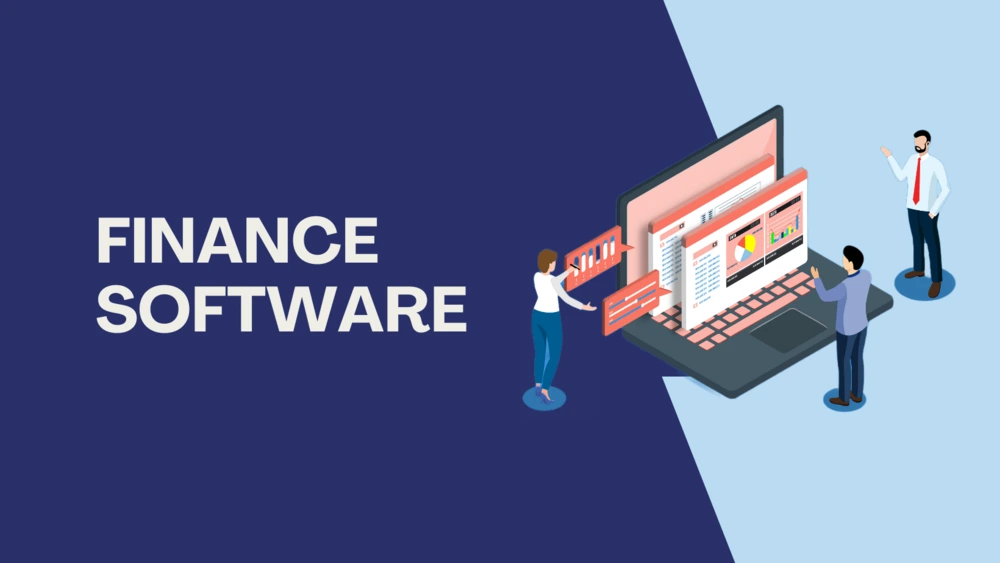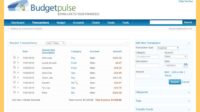Personal and small business finance software has revolutionized the way individuals and businesses manage their finances. From budgeting and expense tracking to investment management and accounting, these tools offer a comprehensive suite of features to streamline financial operations and achieve financial goals.
These software solutions empower users with insights into their spending habits, helping them make informed financial decisions. Whether it’s creating a budget, tracking expenses, or analyzing investment performance, these tools provide the data and tools necessary for financial success. For businesses, finance software streamlines operations, automates tasks, and provides real-time insights into financial performance, enabling informed decision-making and strategic planning.
Introduction to Personal and Small Business Finance Software

Personal and small business finance software are powerful tools that help individuals and businesses manage their financial affairs efficiently. These applications provide a centralized platform for tracking income, expenses, investments, and other financial data, making it easier to make informed decisions and achieve financial goals.
Benefits of Using Finance Software
Finance software offers numerous advantages for individuals and businesses. These benefits include:
- Improved Financial Organization: Finance software provides a structured framework for organizing financial data, ensuring all transactions are recorded and easily accessible. This eliminates the need for manual record-keeping and reduces the risk of errors.
- Enhanced Budgeting and Financial Planning: By tracking income and expenses, finance software enables users to create realistic budgets and forecast future financial needs. This helps individuals and businesses prioritize spending, allocate resources effectively, and make informed financial decisions.
- Increased Financial Awareness: Regularly analyzing financial data through finance software provides insights into spending patterns and financial health. Users can identify areas for improvement, optimize financial strategies, and make informed decisions about investments and debt management.
- Streamlined Bill Payment and Debt Management: Many finance software applications offer features for managing bills, setting reminders, and tracking debt payments. This simplifies the bill payment process, reduces the risk of late payments, and helps users pay off debts more efficiently.
- Automated Reporting and Analysis: Finance software generates comprehensive reports and financial statements, providing a clear overview of financial performance. These reports can be customized to meet specific needs, allowing users to track progress towards goals, identify trends, and make data-driven decisions.
- Security and Data Protection: Reputable finance software providers prioritize data security and employ robust encryption measures to protect sensitive financial information from unauthorized access.
Types of Finance Software
There are various types of finance software available, each catering to specific needs and preferences. Some common categories include:
- Personal Finance Software: Designed for individuals, these applications help manage personal finances, including budgeting, tracking expenses, and managing investments. Examples include Mint, Personal Capital, and YNAB (You Need a Budget).
- Small Business Accounting Software: Tailored for small businesses, these applications provide comprehensive accounting features, such as invoicing, expense tracking, payroll management, and financial reporting. Popular options include QuickBooks, Xero, and FreshBooks.
- Investment Management Software: These applications help individuals and businesses manage their investment portfolios, track performance, and analyze market trends. Examples include Fidelity Go, Betterment, and Wealthfront.
- Financial Planning Software: Designed for financial advisors and professionals, these applications facilitate financial planning, portfolio management, and client reporting. Examples include MoneyGuidePro, eMoney Advisor, and Addepar.
Key Features of Personal Finance Software
Personal finance software empowers individuals to take control of their financial well-being. These tools offer a range of features designed to simplify budgeting, track expenses, manage investments, and plan for the future.
Budgeting Tools
Budgeting tools are the cornerstone of effective personal finance management. They help users create realistic budgets, track income and expenses, and identify areas for potential savings.
- Income and Expense Tracking: Software allows users to input their income sources and categorize their expenses, providing a clear picture of their financial inflows and outflows.
- Budgeting Templates and Categories: Pre-defined budgeting templates and customizable expense categories simplify the process of creating a budget that aligns with individual needs and goals.
- Goal Setting and Progress Monitoring: Users can set financial goals, such as saving for a down payment, paying off debt, or retirement planning. Software tracks progress toward these goals, providing motivation and transparency.
Expense Tracking
Accurate expense tracking is crucial for understanding spending habits and identifying areas for improvement. Personal finance software streamlines this process.
- Automatic Transactions: Software can automatically import transactions from bank accounts, credit cards, and other financial institutions, eliminating the need for manual entry.
- Categorization and Analysis: Transactions are categorized based on predefined or user-defined categories, allowing for detailed analysis of spending patterns.
- Visualizations and Reports: Software often presents expense data in graphical formats, such as charts and graphs, providing a clear visual representation of spending trends.
Investment Management
Investment management features help users make informed decisions about their investments and track their portfolio performance.
- Portfolio Tracking: Software allows users to monitor the performance of their investments, including stocks, bonds, mutual funds, and real estate.
- Performance Analysis: Users can analyze the historical performance of their investments, including returns, risk, and diversification.
- Investment Planning: Software may offer tools for creating investment plans based on individual goals, risk tolerance, and time horizon.
Debt Management
Debt management features help users get control of their debt and develop strategies for repayment.
- Debt Tracking: Software allows users to track all outstanding debts, including balances, interest rates, and minimum payments.
- Debt Reduction Strategies: Users can explore different debt reduction strategies, such as the snowball or avalanche method, to optimize repayment plans.
- Debt Consolidation and Refinancing: Some software may provide tools for consolidating debt or refinancing loans to lower interest rates and reduce monthly payments.
Financial Planning
Financial planning features help users set long-term financial goals and develop strategies to achieve them.
- Retirement Planning: Software can help users estimate their retirement needs, project future income and expenses, and create a personalized retirement savings plan.
- Goal Setting and Projections: Users can set financial goals, such as buying a home, paying for education, or starting a business, and project the time and resources needed to achieve them.
- Scenario Analysis: Software may allow users to model different financial scenarios, such as income changes, market fluctuations, or unexpected expenses, to assess their financial resilience.
Key Features of Small Business Finance Software

Small business finance software offers a range of tools to streamline financial operations, enhance efficiency, and drive growth. These platforms go beyond basic accounting functionalities, providing comprehensive solutions for managing various aspects of a business.
Accounting, Invoicing, and Payroll
These core functionalities form the foundation of any robust small business finance software.
- Accounting: Software facilitates tracking income, expenses, and financial transactions, providing real-time insights into the financial health of the business. This feature is crucial for maintaining accurate financial records, generating financial statements, and making informed business decisions.
- Invoicing: Software streamlines the invoicing process, enabling businesses to create professional invoices, track payments, and manage outstanding balances. This helps improve cash flow and ensures timely payments from clients.
- Payroll: The software automates payroll processing, calculating salaries, deductions, and taxes, ensuring accurate and timely payment to employees. This feature simplifies payroll management, reduces errors, and minimizes administrative burden.
Inventory Management
Effective inventory management is crucial for businesses that deal with physical goods.
- Inventory Tracking: The software enables businesses to track inventory levels, monitor stock movement, and identify potential stockouts or overstocking. This helps optimize inventory levels, reduce storage costs, and ensure timely fulfillment of customer orders.
- Purchase Order Management: Software streamlines the purchase order process, allowing businesses to track orders, manage supplier relationships, and ensure timely delivery of goods. This improves efficiency and reduces the risk of supply chain disruptions.
- Inventory Valuation: The software provides tools for valuing inventory, helping businesses determine the cost of goods sold and calculate profit margins. This feature is essential for accurate financial reporting and decision-making.
Reporting and Analysis
Data-driven insights are essential for making informed business decisions.
- Financial Reporting: Software generates various financial reports, such as balance sheets, income statements, and cash flow statements, providing a comprehensive overview of the business’s financial performance. These reports help identify trends, assess financial health, and make informed strategic decisions.
- Customizable Dashboards: Software offers customizable dashboards that allow businesses to visualize key financial metrics and performance indicators. These dashboards provide a real-time view of the business’s financial health, enabling quick identification of areas requiring attention.
- Business Intelligence: Advanced software features include business intelligence tools that analyze data, identify patterns, and generate insights to support strategic decision-making. This helps businesses understand customer behavior, market trends, and optimize operations for profitability.
Customer Relationship Management (CRM)
Building strong customer relationships is essential for business growth.
- Customer Database: The software maintains a centralized customer database, storing information such as contact details, purchase history, and interactions. This helps businesses understand customer needs, personalize communication, and improve customer satisfaction.
- Sales and Marketing Automation: Software automates sales and marketing tasks, such as sending personalized emails, scheduling appointments, and managing marketing campaigns. This improves efficiency, increases productivity, and enhances customer engagement.
- Customer Service: Software features can facilitate customer service interactions, allowing businesses to track inquiries, resolve issues, and improve customer support. This enhances customer experience and builds loyalty.
Examples of Robust Small Business Finance Software
Several software solutions offer robust features for business growth and analysis. Some popular examples include:
- Xero: A cloud-based accounting software that provides comprehensive functionalities for small businesses, including accounting, invoicing, payroll, and inventory management. Xero integrates with various third-party applications, offering a flexible and customizable solution.
- QuickBooks: A widely used accounting software that caters to both small and medium-sized businesses. QuickBooks offers a range of features, including accounting, invoicing, payroll, and inventory management. It also provides robust reporting and analysis tools.
- Zoho CRM: A comprehensive CRM solution that helps businesses manage customer relationships, track sales, and automate marketing campaigns. Zoho CRM integrates with other Zoho applications, offering a complete suite of business tools.
Benefits of Using Finance Software

Finance software offers a plethora of benefits for both individuals and businesses, streamlining financial management and fostering a more organized and informed approach to financial decision-making. It provides tools to track income and expenses, set financial goals, and analyze spending patterns, ultimately leading to greater financial control and success.
Achieving Financial Goals
Finance software helps individuals and businesses achieve financial goals by providing a clear picture of their current financial standing and offering tools to plan for the future. By tracking income and expenses, users can identify areas where they can save money and allocate resources more effectively. Setting financial goals within the software, such as saving for retirement, paying off debt, or buying a house, allows users to track progress and stay motivated.
For example, a person aiming to save for a down payment on a house can use finance software to create a budget, track their savings progress, and simulate different scenarios to determine how long it will take to reach their goal. This allows them to make informed decisions about their spending and adjust their savings plan as needed.
Improving Financial Literacy
Finance software empowers individuals and businesses to enhance their financial literacy by providing access to valuable insights and data. The software’s budgeting and analysis features allow users to understand their spending habits, identify areas where they can save money, and learn about different financial concepts such as interest rates and compound growth.For instance, a small business owner can use finance software to track their income and expenses, analyze their profit margins, and identify areas where they can improve their financial performance.
This data can help them make informed decisions about pricing, inventory management, and marketing, leading to greater profitability.
Saving Time and Effort, Personal and small business finance software
Finance software simplifies financial management by automating repetitive tasks, reducing the time and effort required for manual record-keeping and calculations. Features like automatic bank account synchronization, bill payment reminders, and expense categorization streamline the process of managing finances, freeing up time for more strategic activities.For example, a freelancer can use finance software to track their income and expenses, generate invoices, and send payment reminders, automating these tasks and eliminating the need for manual record-keeping.
This allows them to focus on their work and grow their business.









